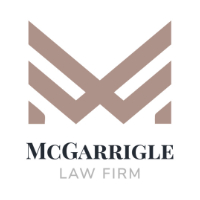Exton White Collar Crime Lawyer, Pennsylvania
Sponsored Law Firm
-
 x
x

Click For More Info:
-
Law Office of Mark S. Guralnick
55 Madison Avenue 4th Floor Morristown, NJ 07960» view mapCriminal Defense Law Dedicated. Fearless. Successful.
Mark S. Guralnick and his legal team have helped clients throughout the USA and across the world by applying unparalleled dedication and hard work to each case.
800-399-8371
Daniel McGarrigle
✓ VERIFIEDMilitary & Veterans Appeals, White Collar Crime, DUI-DWI, Criminal
Attorney Daniel McGarrigle is an aggressive advocate and experienced litigator; he has tried hundreds of cases and handled all types of criminal matte... (more)
FREE CONSULTATION
CONTACTEdward John King
Real Estate, Pharmaceutical Product, Divorce & Family Law, White Collar Crime
Status: In Good Standing Licensed: 51 Years
Terence Patrick Ruf
Litigation, White Collar Crime, Consumer Protection, Business
Status: In Good Standing Licensed: 18 Years
Ashly Ryan McGarity
Visa, DUI-DWI, Domestic Violence & Neglect, Firearms, White Collar Crime
Status: In Good Standing
Peter E. Kratsa
Traffic, Divorce & Family Law, White Collar Crime, Criminal
Status: In Good Standing Licensed: 31 Years
Heather Jo Mattes
Federal Claims Court, Divorce & Family Law, White Collar Crime, Criminal
Status: In Good Standing
 Mark Guralnick Morristown, NJ
Mark Guralnick Morristown, NJ AboutLaw Office of Mark S. Guralnick
AboutLaw Office of Mark S. Guralnick Practice AreasExpertise
Practice AreasExpertise

